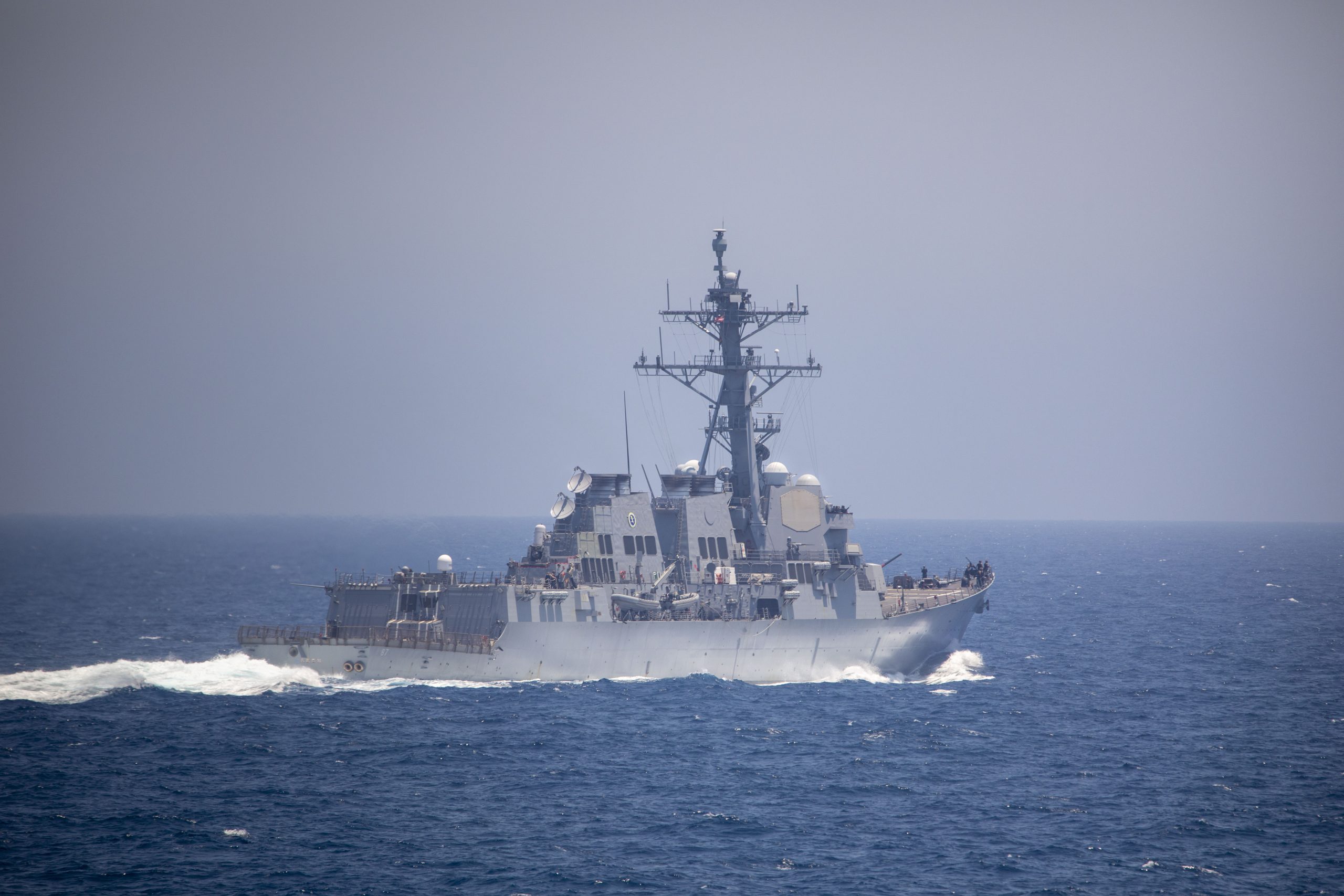
THE PENTAGON – An attack on a commercial shipping vessel, sailing under a Liberian flag but linked to an Israel businessman, was likely conducted by Somali pirates, the Pentagon press secretary told reporters Monday.
The crew of USS Mason (DDG-87), which responded to the distress call put out by M/V Central Park, captured five people attempting to flee to Yemen after boarding the merchant tanker. Initial indications suggest the five people being held aboard Mason are Somali, Brig. Gen. Patrick Ryder told reporters.
Somali pirates are nothing new to the Gulf of Aden, retired Rear Adm. Tery McKnight told USNI News on Monday. The strip of water between the Horn of Africa and the Arabian Peninsula was plagued with Somali pirates in the 2000s, McKnight said.
Somali pirates have been known to take advantage of situations like the high tensions in the Middle East. But what is unusual is the two missiles fired from Houthi-controlled areas of Yemen about an hour and 40 minutes after Mason’s crew boarded Central Park to help take back the ship, said McKnight, the first commander of the anti-piracy Combined Task Force 151.
“That is very odd. I mean, as far I know, that is the first time that’s happened,” McKnight said. ” “What’s interesting about the whole thing is how the Houthi’s knew that the Mason picked them up, and they were going after this particular vessel.”
Central Park was allegedly threatened on its way into the Red Sea prior to the attack, said Sal Mercogliano, a maritime professor at Campbell University. Now it was attacked on its way out, he said.
“It’s impossible to say that that’s a coincidence that Central Park was targeted by Yemen to come, to divert into their port, and then Central Park was hit again in the Gulf of Aden by Somali pirates,” Mercogliano said. “That level of coincidence is a bit too much for the volume of traffic coming through.”
Mercogliano said there are open questions surrounding this incident, including how the alleged Somali pirates knew Central Park was linked to an Israeli businessman. Companies tend to use liability shielding, which makes it harder to find who the owner is, he said.
While Somali pirates often attacked in the Gulf of Aden in the early 2000s and 2010s, piracy had died down in the area since 2017, Mercogliano said. It is unclear if the attack is the result of Somali pirates taking advantage of the situation in the Middle East.
“It raises a lot of questions in the fact that Central Park was the subject of not one but potentially two attacks,” Mercogliano said. “This is a vessel that has Israeli ownership associated with it. So it raises the question for me whether the Somali pirate attack was instigated and funded by some outside source.”
During the unrest in Somalia, people fled to Yemen, McKnight said. That raises the question of if the five alleged Somalians lived in Yemen.
Another question raised by McKnight and Mercogliano is what the U.S. will do with the five suspected pirates. The last time the U.S. prosecuted someone for piracy of a commercial ship was the Somali pirate who participated of the capture of Maersk Alabama in 2009, Mercogliano said.
Ryder also told reporters that there were three People’s Liberation Army Navy ships near the incident with Mason and Central Park but did not render assistance, which came as no surprise to Mercogliano or McKnight.
China has long had an anti-piracy fleet in the Middle East waters as part of its protection of its own merchant ships. But unlike the U.S. and members of the anti-piracy coalition Task Force 151, the Chinese ships do not engage with pirates unless they are attacking a Chinese ship, McKnight said.
The only question about the Chinese presence is if they were told not to interfere, Mercogliano said, noting that the Chinese do sometimes work with other forces.





